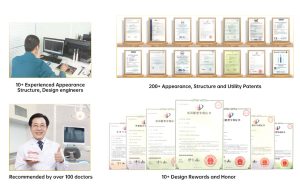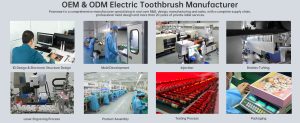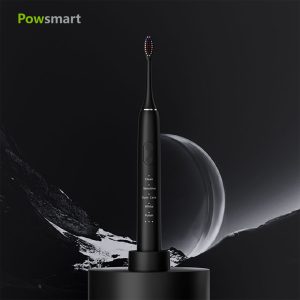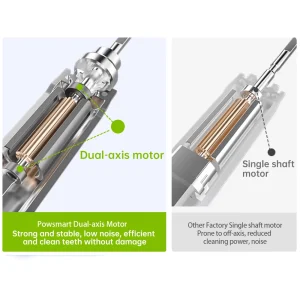With the rapid development of the oral care industry, electric toothbrushes have become a household necessity. However, many manufacturers face challenges in optimize the production process of electric toothbrush while maintaining high quality and efficiency. The introduction of intelligent factory upgrade practices has revolutionized the industry by enhancing production capabilities, improving precision, and reducing costs.
This blog explores how manufacturers can optimize the production process of electric toothbrushes by leveraging automation, digitalization, and intelligent management systems.
Intelligent Production Line Automation
The first step in optimize the production process of electric toothbrush is implementing automated production lines. Traditional manufacturing methods rely heavily on manual labor, leading to inconsistencies and inefficiencies. By integrating robotics and AI-driven machinery, manufacturers can achieve:
Higher production efficiency and reduced cycle time.
Improved product consistency with precise assembly and quality control.
Reduced labor costs and minimized human error.
Automation also plays a crucial role in streamlining the electric toothbrush technical secret by ensuring each component, from brush heads to motors, is assembled with high precision.

Digital Twin Technology for Real-Time Monitoring
A key component of the intelligent factory upgrade practice is the implementation of digital twin technology. This allows manufacturers to create a virtual replica of the entire production line, enabling real-time monitoring and analysis of every step in the production process of electric toothbrushes. Benefits include:
Predictive maintenance to minimize machine downtime.
Real-time tracking of defects and quality assurance.
Data-driven decision-making to optimize resource allocation.
By utilizing digital twin technology, manufacturers can swiftly identify bottlenecks and enhance production efficiency.
Smart Material Management System
Material sourcing and inventory management significantly impact production efficiency. Implementing a smart material management system ensures that raw materials, including bristles, motors, and casings, are available just in time, preventing delays. Features include:
Automated inventory tracking with IoT sensors.
AI-based demand forecasting to reduce waste.
Supply chain optimization for cost savings.
This approach minimizes downtime caused by material shortages and enhances cost efficiency.
AI-Powered Quality Control
Maintaining high product quality is a crucial aspect of the electric toothbrush technical secret. AI-powered quality control systems, such as computer vision and machine learning algorithms, help detect defects in real time. These systems can:
Identify microscopic flaws that are undetectable by the human eye.
Ensure uniform product quality by analyzing production data.
Reduce waste by detecting defects early in the process.
Integrating AI-powered quality control enhances the reliability and performance of electric toothbrushes, meeting stringent industry standards.
Flexible Manufacturing for Customization
The demand for personalized electric toothbrushes, including different brush heads, colors, and smart features, is rising. Optimizing the production process requires flexible manufacturing capabilities, such as:
Modular production lines that adapt to different designs.
AI-driven customization tools for product differentiation.
Small-batch production capabilities without increasing costs.
By incorporating flexible manufacturing, companies can cater to diverse consumer preferences while maintaining efficiency.
Data-Driven Decision Making and Smart Factory Integration
An intelligent factory upgrade practice is incomplete without a robust data-driven decision-making framework. Integrating all manufacturing processes into a centralized smart factory system enables:
Real-time production analytics to optimize workflows.
Energy efficiency monitoring for sustainable operations.
AI-based recommendations for continuous process improvement.
By leveraging data analytics and IoT connectivity, manufacturers can transform their facilities into fully intelligent factories.
Conclusion
Optimize the production process of electric toothbrush requires a comprehensive approach that integrates automation, AI, and digital solutions. Intelligent factory upgrade practices, including smart production lines, AI-powered quality control, and data-driven management, help manufacturers enhance efficiency, reduce costs, and maintain high-quality standards. By embracing these innovations, manufacturers can gain a competitive edge in the ever-evolving oral care industry.





